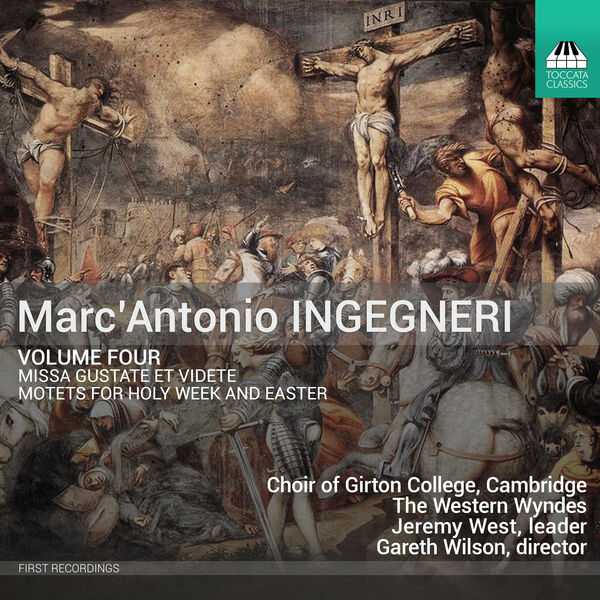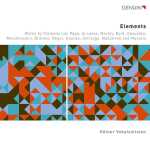

Composer: Marc’Antonio Ingegneri, Orlando di Lassus
Performer: Choir of Girton College Cambridge, Western Wyndes, Felix Elliott, Emily Nott, Gabriel Kennedy, Jeremy West, Gareth Wilson
Format: FLAC (tracks)
Label: Toccata Classics
Catalogue: TOCC0716
Release: 2024
Size: 1.28 GB
Recovery: +3%
Scan: yes
01. Ingegneri: Cantate Domino à6
02. Lassus: Gustate et videte
Ingegneri: Missa Gustate et videte à 5
03. I. Kyrie
04. II. Gloria
05. III. Credo
06. IV. Sanctus – Benedictus
07. V. Agnus Dei I & II
08. Ingegneri: O Domine Jesu Christe à4
09. Ingegneri: Santa Madre del ciel à4
10. Ingegneri: Adoramus, te Christe à4
11. Ingegneri: Ave Jesu Christe à5
12. Ingegneri: Con voi quando partiste à4
13. Ingegneri: Regina coeli à 4
14. Ingegneri: Haec dies
15. Ingegneri: O sacrum convivium (II) à5
16. Ingegneri: Antoni confessor magne à6
17. Ingegneri: Donna real à 4
18. Ingegneri: Salve Regina à4
This release is the fourth in a series by the Choir of Girton College, Cambridge, devoted to the Italian (Cremonese) composer Marc’Antonio Ingegneri. It is devoted to Easter pieces, which surely helped place it on classical best-seller lists during that season in 2024, but it may also be that word about the quality of Ingegneri’s music is getting out. Ingegneri was the teacher of Monteverdi and slightly younger than Palestrina. The resemblance to Palestrina is easy to hear; if anything, Ingegneri’s textures are even more transparent and limpid. The highlight on this installment is the Missa gustate et videte, based on a motet by Orlande de Lassus that is also included. This is an example of the so-called parody (or imitation) mass technique, where the parts of a polyphonic model are absorbed into the new work, and it is an exceptionally subtle example. The program then proceeds into short motets, again in the Palestrina style but of great simple beauty. Choir leader Jeremy West changes up the texture with accompaniment from the brass group The Western Wyndes (one of several brass ensembles to have appeared in this series) and with organ versions of Ingegneri madrigals. The choir, with 33 (mixed-gender, adult) members, is ideal, and the booklet includes substantial essays addressing Ingegneri’s music from various perspectives. The album and its companions in the series offer an excellent introduction to a neglected Renaissance composer.
The Cremonese composer Marc’Antonio Ingegneri (c. 1535/36–92) is chiefly remembered as the teacher of Claudio Monteverdi while, for well-nigh 500 years, his own achievements were left to sit in the shadows. This fourth in a series of pioneering recordings from the Choir of Girton College, Cambridge, presents a sequence of music for Holy Week and Easter, confirming Ingegneri to have been one of the masters of his age. The striking range of moods heard here will confound conventional expectations of Renaissance polyphony: Ingegneri’s emotional palette extends from tender intimacy in some of these motets to dancing, celebratory jubilation in the Mass setting – all of it music of breathtaking richness and beauty.



